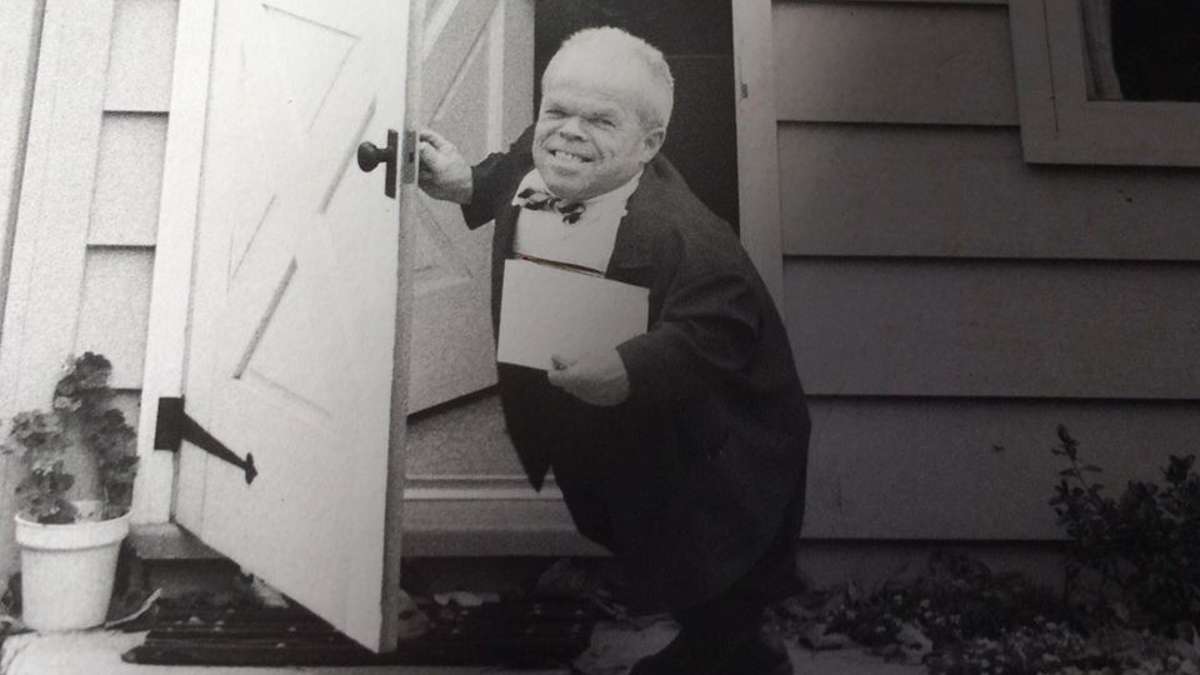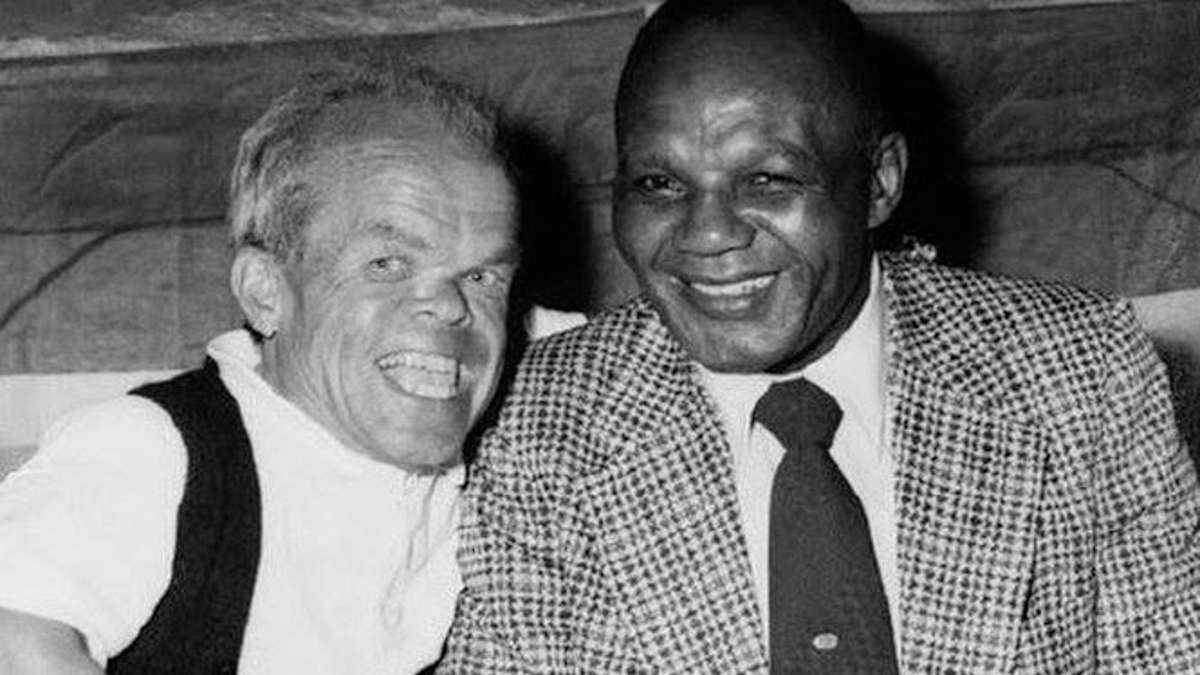My great-uncle Mace Bugen, a professional photo-bomber
ListenMy Great-Uncle Moishe Morris “Mace” Bugen was a legendary character in the Lehigh Valley of Pennsylvania where he lived all of his life. He rode around town in an open-air Jeep and people would call “Hey Macey” from the street.
Mace ran a successful real estate business, but he was especially known for his hobby of taking photos with celebrities — Joe Dimaggio, Sammy Davis, Jr., Ella Fitzgerald, Marilyn Monroe; his pictures of himself with the greatest celebs and athletes of his day hung on a bulletin board in front of his desk and people would stop by to see his latest.
Uncle Mace stood at 43 inches tall. He was born with dwarfism and had a hump on his back and walked with a cane. But though Mace, born in 1915, grew up in an era before there were any accommodations for people with mobility issues, and when it was common to refer to people with disabilities with derogatory names, Mace never let society’s prejudices or his own physical limitations stop him.
Mace was my maternal Grandma’s younger brother and he adored all of his nieces and nephews. My siblings and I were his grand-nieces and nephew and we were especially spoiled—his pockets were full of gum and candy; his arms always full of gifts and he’d take us on rides in his open-air Jeep to get ice cream.
People have asked what it was like to have an Uncle who was a dwarf and that question always puzzles me; Uncle Mace was simply Uncle Mace. He interviewed us on his portable tape recorder, acting like a radio talk show host, and made us feel like we kids had important things to say. Mace had a way of making everyday, regular things more fun — I remember him talking back to the TV, calling out Yiddish expletives, when we were watching our favorite police shows.
Over the past few years, I’ve had the awesome opportunity of getting to understand Mace’s life in greater depth while researching my memoir about his extraordinary life, The Little Gate Crasher. Hearing stories about Mace from people who knew him has allowed me to appreciate Mace’s accomplishments from an adult perspective.
I was not conscious of the choice that he made to be a positive person despite being regularly taunted about his size while growing up. Mace’s spirit and energy were larger than life—and that is what the people who knew him remember most.
In my research, I uncovered not only the personal challenges that Mace faced, but also the more global prejudice that dwarves have both historically and still currently face. And in addition to attitudinal prejudice, dwarves face the accessibility challenges that come with living in a world that doesn’t have restrooms and other human necessities built to their size.
I realized what a gift it was that my siblings and me go to know our amazing Great-Uncle and to understand him not as a dwarf, but as a remarkable human being. As parents, we need to make sure that we are educating our children about understanding the wide array of differences in human beings.
Gabrielle Kaplan-Mayer is a writer and educator based in Philadelphia.
WHYY is your source for fact-based, in-depth journalism and information. As a nonprofit organization, we rely on financial support from readers like you. Please give today.








